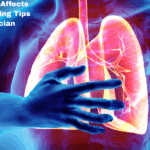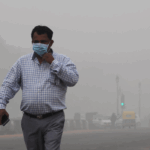
Pneumonia, a respiratory infection affecting the lungs, can be mitigated through proactive measures that support a healthy respiratory system. Dr. Yogesh Agrawal, recognized as a leading pulmonologist in Waked, Pune, emphasizes the importance of preventive strategies to reduce the risk of pneumonia. In this article, we explore practical and effective tips to maintain respiratory health and minimize the likelihood of contracting pneumonia.
Stay Up-to-Date with Vaccinations:
Vaccination stands out as a highly effective method for preventing specific types of pneumonia. Vaccines such as the pneumococcal vaccine and the influenza vaccine can provide protection against specific strains of bacteria and viruses known to cause pneumonia.
Practice Good Hand Hygiene:
Since pneumonia can be caused by infectious agents transmitted through respiratory droplets, practicing good hand hygiene is crucial. Regular handwashing with soap and water, especially after coughing or sneezing, can help prevent the spread of germs.
Promote a Smoke-Free Environment:
The act of smoking harms the lungs and compromises the immune system, increasing individuals’ vulnerability to respiratory infections, including pneumonia. Quitting smoking or avoiding exposure to secondhand smoke is a vital step in maintaining respiratory health.
Maintain a Healthy Lifestyle:
Adopting a healthy lifestyle plays a significant role in preventing pneumonia. Adequate nutrition, regular exercise, and sufficient sleep contribute to a robust immune system, reducing the risk of infections.
Practice Respiratory Etiquette:
Encourage the practice of respiratory etiquette to prevent the spread of respiratory infections. Covering the mouth and nose with a tissue or elbow when coughing or sneezing can minimize the release of infectious droplets into the air.
Stay Active and Exercise Regularly:
Physical activity not only promotes overall health but also supports a healthy respiratory system. Regular exercise helps improve lung function and enhances the body’s ability to fight off infections.
Ensure Adequate Hydration:
Staying well-hydrated is essential for maintaining the health of the respiratory system. Proper hydration helps keep the mucous membranes in the respiratory tract moist, making it easier to trap and eliminate pathogens.
Avoid Overexertion During Illness:
When individuals are already sick, pushing the body too hard can weaken the immune system further. Adequate rest during illness allows the body to focus its energy on recovery and immune response.
Monitor Indoor Air Quality:
Inadequate indoor air quality may contribute to issues with the respiratory system. Ensure proper ventilation in living spaces, and consider using air purifiers to reduce the concentration of airborne pollutants that may irritate the respiratory system.
Seek Prompt Medical Attention:
If symptoms suggestive of pneumonia, such as persistent cough, difficulty breathing, and chest pain, arise, seek prompt medical attention. Prompt identification and treatment can markedly enhance results and avert complications.
Conclusion:
In conclusion, Dr. Yogesh Agrawal’s expertise as the best pulmonologist in Wakad, Pune, lends valuable insights into the significance of pneumonia prevention. By following these practical tips, individuals not only safeguard their respiratory health but also contribute to a community that prioritizes well-being. Dr. Agrawal’s commitment to respiratory care underscores the importance of vaccination, hygiene, and a healthy lifestyle in mitigating the risk of pneumonia. By incorporating these strategies into daily life, one can proactively promote a robust respiratory system and reduce susceptibility to respiratory infections. Remember, a small effort today can go a long way in ensuring a healthier tomorrow.




